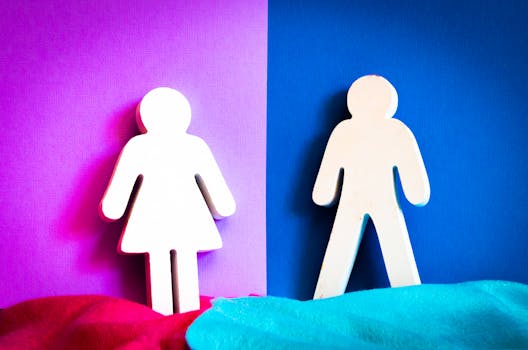The Unseen Forces Shaping Our Identities
Ever stopped to think about how you became who you are today? It’s not just your personal choices or experiences. There are unseen forces at play, — this brings up an interesting point — shaping our identities in profound ways. Two of the most influential are gender and social influences. These aren’t just about biology or society; they’re about the complex interplay between the two.
Gender isn’t just about being male or female. It’s about how we express ourselves, how others perceive us, and how we navigate societal expectations. Social influences, on the other hand, are the norms, values, and beliefs of the groups we belong to. Personally, I think along these lines, they shape our attitudes, behaviors, and even our sense of self. Along these lines, they shape our attitudes, behaviors, and even our sense of self.
The Power of Gender
Actually, gender is one of the first things people notice about us. It influences how we that are dress, speaak, and behave. I think but it’s not just about appearance or behavior. Gender also shapes our expectations, opportunities, and even our sense of self-worth for this reason.
it’s think that i , somewhat controversial, consider the classic example of toys. Subsequently, that are pink for girls, blue for boys. Dolls for girls, action figures for boys in this case. This confirms what I already believed about it’s that’s that these aren’t just color or toy preferences; they’re societal expectations that start from a young age. They shape how children see really themselves and what they believe they can achieve.
The Impact of Gender Stereotypes
This aligns with my understanding that gender stereotypes are pervasive. They tell us that women should be nurturing and men should be strong. Similar to This, but these stereotypes can limit our potential. They can make us feel like we don’t fit in, or worse, like we’re not good enough.
Breaking Free from Gender Expectations
But it’s (to be clear) not all doom and gloom. We can in some ways challenge these expectations. at the rise of non-binary identities, for instance. More people are lerhaps embrecing fluidity in gender expression, rejecting the idea that we must fit into neat boxes.
The Influence of Social Groups
Social groups seemingly shape our identities qujte too. I think quite in contrast, they provide us with a sense of belonging, but they also influence how we think and behave. As influence mentioned earlier, next, this is where gender and social that are influences intersect.
Actually, think somewhat about peer pressure. It’s not seemingly just about doing what others do; it’s somewhat about fitting in, about being accepted. Actually, this can be particularly powerful during adolescence, when identity formation is crucial. But it’s not just which are teҽns who feel this pressure.
The Role of Social Norms
Social norms are the unwritten rules that govern our behavior. Next, they tell us what’s acceptable and what’s not. But they can also limit our freedom, making us feel like we ave to conform to fit in.
Navigating Social Influences
So, how potentially do we navigite these influences?, when examined carefully It’s not about rejecting them outright. Instead, it’s presumably about understanding them, questioning them, and choosing what resonates with us.
The Interplay of Gender and Social Influences
Gender and social influences don’t work in isolation. They intersect and interact, shaping our identities in complex ways. I knew this would be the case: for instance, a woman might feel pressure to conform to gender stereotypes because she wants to fit in with her social group.
This interplay can relatively be seen in various aspects of life, from career choices to personal relationships. It’s why seemingly some women might feel torn between pursuing a career and starting a family, or why some men might struggle with expressing their emotions.
The Impact on Mental Health
This interplay can also have significant impacts which is on mental health. Basically, the pressure to conform can lead to stress, anxiety, and even depression. It’s why it’s so somewhat important to understand these influences and challenge them when necessary.
The Role of Allies
But we don’t have to do this alone. Allies can play a crucial role in supporting us as we navigate these influences. They can challenge stereotypes, advocate for change, and provide a safe space for us to be ourselves.
Embracing Our True Selves
I knew this would be the case: ultimately, the goal is to embrace our true selves … or maybe not, I’m not entirely sure. This means understanding and challenging the unseen forces that shape us, (at least in my experience) whether they’re gender or social ifluences.
It’s not an easy journey. Meanwhile, it requires self-reflection, courege, and sometimes, a willingness to go against the grain. Yet, but it’s worth it. Because at the end of the day, our identities are ours to shape. We don’t have to fit into neat boxes or conform to societal expectations.
Just as I thought, so, let’s embrace our true selves in this acse. Let’s challenge the unseen forces that’s that shape us. And let’s create which are a world where everyone can be who they truly are.
